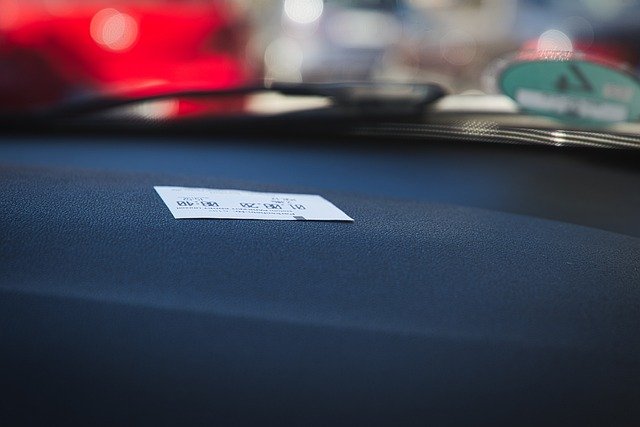What to Know About Buying Confiscated Cars at Auction
Buying a vehicle through a confiscated car auction involves more than just finding a low price—it’s about understanding how the process works and what factors people typically evaluate before making a decision. From title status and auction terms to how vehicles are sourced, this guide outlines key considerations that help buyers navigate choices with clarity. Explore more about how these auctions are structured and what people commonly watch for.

How Do Police Seizure Auctions Work?
Police seizure auctions represent one of the primary sources for confiscated vehicles, typically involving cars that have been impounded due to criminal activity, unpaid fines, or abandonment. Law enforcement agencies conduct these auctions to recover storage costs and clear impound lots. The vehicles sold at police seizure auctions often include everything from economy cars to luxury vehicles, depending on the circumstances of their confiscation.
Most police departments hold these auctions monthly or quarterly, either in person or through online platforms. Buyers usually need to register in advance, provide identification, and demonstrate their ability to pay through cash, certified funds, or pre-approved financing. The auction process typically involves previewing vehicles beforehand, though mechanical inspections are rarely permitted, making visual assessment crucial for potential buyers.
Understanding Government Car Auctions
Government car auctions extend beyond police seizures to include vehicles from various federal, state, and local agencies. These auctions feature former government fleet vehicles, seized assets from federal investigations, and surplus vehicles from different departments. Government car auctions often provide more detailed vehicle histories compared to other auction types, as government agencies typically maintain comprehensive maintenance records.
The General Services Administration and other government entities regularly conduct these auctions, offering vehicles that range from basic sedans to specialized equipment. Buyers at government car auctions may find vehicles with higher mileage but consistent maintenance histories, as many government fleets follow strict servicing schedules. Registration requirements and payment terms vary by agency, but most require immediate payment or short-term financing arrangements.
What Are Salvage Title Risks?
Salvage title risks represent one of the most significant concerns when purchasing confiscated vehicles at auction. A salvage title indicates that an insurance company has declared the vehicle a total loss due to damage, theft recovery, or other factors. Vehicles with salvage titles may have hidden damage that isn’t immediately apparent during auction previews, potentially leading to costly repairs after purchase.
The implications of salvage title risks extend beyond repair costs to include insurance challenges, financing difficulties, and reduced resale values. Many insurance companies either refuse coverage for salvage title vehicles or offer limited policies at higher premiums. Additionally, some states have strict requirements for inspecting and registering salvage title vehicles, which can add time and expense to the ownership process.
Essential Vehicle Auction Tips
Successful auction participation requires preparation and strategic thinking. Vehicle auction tips begin with thorough research about the specific auction house, their terms and conditions, and typical price ranges for desired vehicle types. Experienced buyers recommend setting strict budget limits before attending auctions, as the competitive atmosphere can lead to overbidding.
Physical inspection during preview periods provides crucial information about vehicle condition. Vehicle auction tips emphasize checking for obvious damage, wear patterns, and signs of poor maintenance. Since most auctions operate on “as-is” terms with no warranties, buyers must rely on their assessment skills or bring knowledgeable companions to evaluate potential purchases.
Auction Platforms and Associated Costs
Understanding the landscape of auction platforms helps buyers choose the most suitable venues for their needs. Different platforms specialize in various types of confiscated vehicles and offer distinct fee structures.
| Auction Platform | Vehicle Types | Buyer’s Premium | Registration Fee |
|---|---|---|---|
| Copart | Salvage, insurance total loss | 8-12% of bid price | $99-299 annual |
| IAAI | Insurance, fleet, lease returns | $299 fixed + $39 per bid | $400 annual |
| GSA Auctions | Government surplus vehicles | 7.25% of purchase price | Free registration |
| PropertyRoom.com | Police seizures, evidence | $89 processing fee | Free registration |
| Public Surplus | Government, municipal fleet | 10-13% buyer’s premium | $49 annual |
Prices, rates, or cost estimates mentioned in this article are based on the latest available information but may change over time. Independent research is advised before making financial decisions.
Title Transfer and Registration Considerations
The title transfer process for confiscated vehicles often involves additional steps compared to standard vehicle purchases. Buyers must verify that the selling agency has clear authority to transfer ownership and understand any liens or encumbrances that might affect the title. Some confiscated vehicles may have complex ownership histories that require legal documentation to resolve.
Registration requirements vary significantly by state, particularly for vehicles with salvage or rebuilt titles. Many jurisdictions require special inspections, additional documentation, or waiting periods before issuing registration for auction-purchased vehicles. Understanding these requirements before bidding helps avoid unexpected delays or costs after purchase.
Purchasing confiscated cars at auction can offer significant savings for informed buyers willing to accept the associated risks and challenges. Success in this market requires understanding the auction process, carefully evaluating vehicle conditions, and preparing for potential complications with titles and registration. While these auctions provide access to vehicles at below-market prices, buyers must balance potential savings against the uncertainties inherent in purchasing vehicles with limited histories and no warranties.




